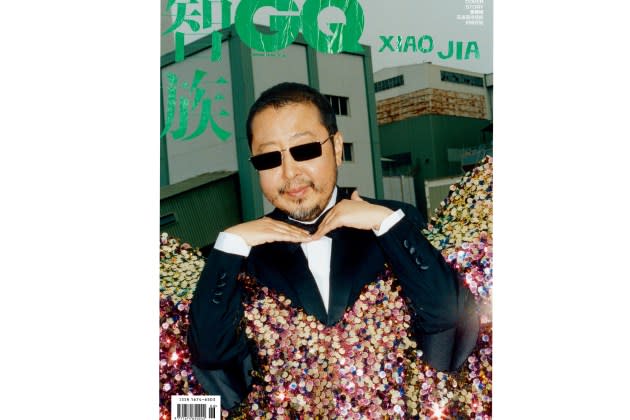GQ China to Part Ways With Local Publishing Partner China News Service

GQ China, which is officially called Zhizu GQ Magazine in China, will have to find a new local partner with a publishing permit in hand after parting ways with its local publishing partner Zhizu Magazine, a subsidiary of China News Service, a state-owned news agency based in Beijing.
In the Chinese market, fashion glossies exist as syndications that copublish with a state-owned entity, which grants the publication its ISSN number, its Chinese title and has the final say on all editorial content.
More from WWD
Mission Magazine Helps The Standard, High Line Celebrate Pride
L'Oréal Stock Declines After Beauty Market Guidance Downgrade
GQ China was launched as a partnership between Condé Nast China and Zhizu of China News Service in September 2009. In recent years, GQ China has had an uneasy relationship with China News Service, according to former employees at GQ.
According to an email sent to GQ China staff from Conde Nast China’s managing director Gill Zhou, GQ China has decided not to renew its five-year contract with Zhizu, effective immediately.
“Over the last many weeks, we’ve been working with our publishing partner Zhizu to support their renewed partnership license for GQ. This is a standard business procedure that happens every five years. During this process, we mutually agreed that it would be best for Condé Nast China and Zhizu to not continue into this next phase of the partnership, starting today,” Zhou wrote in a memo to staff that the company shared with WWD.
“While we finalize these details, we are also working toward a solution where there will be minimal change to our publishing on all platforms — print and social. During this period, we are operating business as usual and our editorial leaders will help provide guidance on workflows and projects,” Zhou continued to write.
“GQ remains a pillar of our business, and our GQ team is an absolute priority for us during this time of transition. We will continue to share updates with everyone as we have them over the coming days. Wendy Wang, our people director, and I can answer any questions you may have. Please feel free to reach out to us directly,” the memo concluded.
GQ China is currently helmed by Rocco Liu, who has been widely speculated to be in the running for the next Vogue China editorial director’s position, succeeding the controversial Margaret Zhang.
In 2016, Liu became the editor in chief of GQ Lab, a GQ China digital spin-off on WeChat, and turned it into a fashion digital media powerhouse with millions of followers.
At the time, GQ Lab could command around 500,000 renminbi, or $70,500, for a single social media post. Condé Nast China back then also disclosed that GQ China became the most profitable edition due to the success of GQ Lab, yielding 200 million renminbi in revenue in 2018, an amount equivalent to several European editions combined.
A champion of the project, Sophia Liao, the beleaguered chief executive officer of Condé Nast China who stepped down in September 2020, called GQ Lab’s wide-ranging success “the rebirth of GQ,” according to local media coverage at the time.
Apart from WeChat, GQ Lab has more than 4.8 million followers on Weibo, Douyin and Xiaohongshu.
Eager to break down barriers between content and commerce, GQ Lab editors recently began livestream selling on Xiaohongshu. Products range from Stanley cups and Salomon sneakers, to healthy snacks.
Best of WWD

 Yahoo Finance
Yahoo Finance 